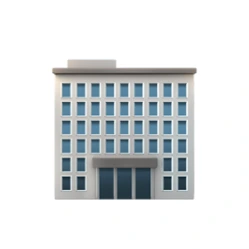


Had a problem with Royal Prince Alfred Hospital? Send a complaint that gets heard.
Royal Prince Alfred Hospital Complaints
Royal Prince Alfred Hospital (RPA) is a leading healthcare facility located in Sydney, Australia. With a wide range of medical services and specialties, RPA aims to provide high-quality care to patients. The hospital offers state-of-the-art facilities and a dedicated team of healthcare professionals. Whilst some individuals may have concerns or complaints about specific aspects of the hospital, RPA strives to address these issues and continuously improve its services.
COMPLAINTS SENT THROUGH AJUST
Caitlin
•
June 20, 2024
Outcome Sought
Apology
Compensation
Other
Lyn
•
June 15, 2024
Outcome Sought
Apology
Compensation
Other
Amanda
•
May 26, 2024
Outcome Sought
Apology
Compensation
Other
Sara
•
May 24, 2024
Outcome Sought
Apology
Compensation
Other
Linda
•
May 13, 2024
Outcome Sought
Apology
Compensation
Other
Anna
•
April 29, 2024
Outcome Sought
Apology
Compensation
Other
Polina
•
Outcome Sought
Apology
Compensation
Other
Linda
•
Outcome Sought
Apology
Compensation
Other
Billie
•
Outcome Sought
Apology
Compensation
Other
Panda
•
Outcome Sought
Apology
Compensation
Other
The best way to resolve an issue with Royal Prince Alfred Hospital
Things don’t always go to plan which is why Ajust is here to help. Whether there’s an issue with a transaction or a complaint about an interaction you’ve had with a business, Ajust’s platform makes it easy to share your story and send your complaint.
Our platform is now available for complaints about any business – supermarkets, retail stores, couriers and logistics, technology businesses and more.
How to complain to Royal Prince Alfred Hospital
Ajust helps hundreds or consumers resolve complaints each month. The simple and easy process ensures that the right information is included in your complaint and presented to the business in a way that is clear so that they can take action. Here are steps to consider before getting started:
Common issues related to Royal Prince Alfred Hospital
Resolving issues with Ajust
Ajust makes it simple to get the answers you deserve. Our platform resolves complaints in three easy steps!

You’ve experienced an issue with a business and you want a resolution. Ajust asks the right questions about what happened, so your story gets heard. It only takes a few minutes.

Ajust uses your story to automatically create a complaint. We send your complaint with the right details, to the right place – so you get the right outcome.

The business responds to your complaint to offer a resolution. If you’re not happy, Ajust helps you explore other options for an outcome.
FAQs
You can also learn more about Ajust here.
Who can use Ajust?
Ajust can be used by any Australian consumer to resolve complaints with any Australian businesses.
How much does it cost?
Nothing! It's free for consumers to use Ajust. Consumers can upgrade to a paid version of our platform if they need to take more action or want to get faster results.
How does Ajust make money?
Consumers and businesses can pay Ajust for extra support to resolve complaints.
Is Ajust independent?
Ajust is an independent business that operates separately from the businesses listed on our website. Our priority is helping consumers resolve their complaints, because we believe that is good for consumers and good for businesses. Ajust is also separate from government, ombudsmen and regulators.
Is it better to complain through Ajust?
Much better! Ajust makes the process easy for you by collecting the right information, sending your complaint to the right place, following up with the business and much more. And it's free for consumers to get started.
Others resolving complaints with Ajust
Still waiting on a fix? Take matters into your own hands.
Ajust helps you file a professional complaint that gets routed to the right place.






